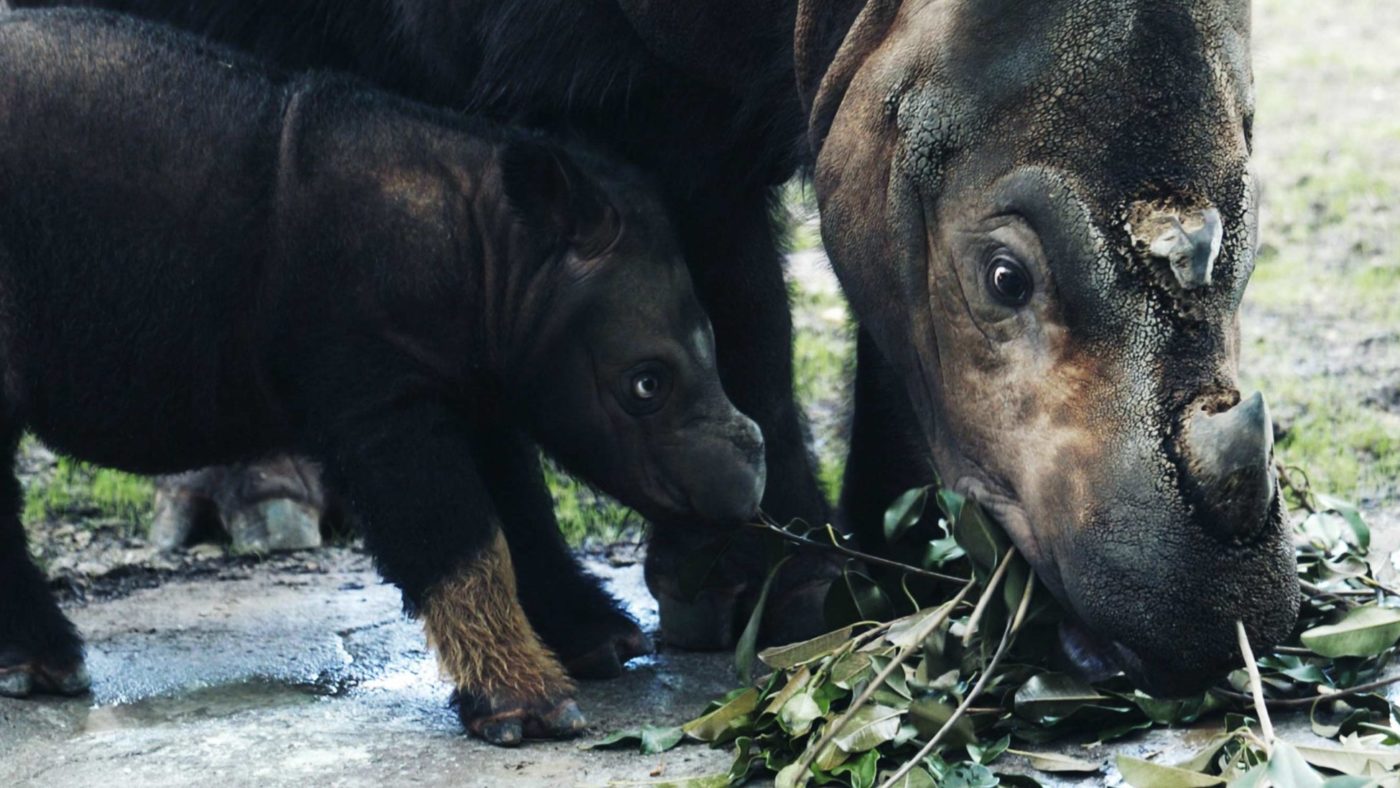I have a pair of lucky underpants. They were acquired during an encounter with a Sumatran rhino called Rosa who had become accustomed to human contact. A team from the International Rhino Foundation, including me, was despatched to the jungles of southern Sumatra to decide whether she should be relocated to our rhino sanctuary in Indonesia’s Way Kambas National Park.
Rosa was gentle and inquisitive albeit with massive physical power and a tough hide that allowed her to push through rough vegetation like a tank through barbed wire. We lay down in the grass and she came to us. A brave young veterinarian from Cornell University thought this was a good opportunity to undertake an ultrasound examination. Moments later I found Rosa’s anterior horn ripping through my trousers and underpants. I swiftly dodged behind a small tree and my posterior was saved.
The Sumatran is the smallest rhino species and sports red fur when born as befits the last descendant of the woolly rhinoceros. In 1986 there were estimated to be as many as 800 Sumatran rhinos left in the wild. Today there are fewer than 80, sprinkled in isolated fragments around Sumatra and Borneo. In another ten years there could be none left at all.
Devastated by poaching and habitat loss, the Sumatran’s decline is symptomatic of a world order that places little value on the flora and fauna that sustain life on earth. Some 97 per cent of all mammals by mass now live as part of the human economy while wild mammals only represent 3 per cent. That is a world wildly out of balance.
Today world leaders will gather at London’s Illegal Wildlife Trade Conference to discuss tactics for ending humanity’s centuries-long assault on global nature. Prince William will join more than 1,000 delegates from 82 countries aiming to stop the £17-billion-a-year illegal trade that is pushing vulnerable species closer to the brink of extinction.
The UK is already leading the way in tackling wildlife-related crime and ocean conservation, but there is an urgent need to radically broaden the scope of Britain’s commitment to global biodiversity. What is needed is direct action on the ground to protect habitat and endangered species around the world.
If the UK is serious about ending the illegal wildlife trade, Britain should establish a global biodiversity agency. This would be funded with substantial resourcing of at least 10 per cent of the foreign aid budget.
Using the best of British scientific and technical knowledge the agency would conduct fundamental research and help local partners in the complex business of preserving and restoring habitat and biodiversity. Intensive breeding and protection of critically endangered species, providing alternative ways of living, educating local people and improving governance are all part of the actions that are needed.
International Development Secretary Penny Mordaunt was right to look this week at how we can make every pound of our foreign aid budget stretch further. Money spent on global nature achieves two aims. With the world’s poorest heavily reliant on the natural world for their lives and livelihoods, protecting wildlife is good for both people and planet.
With the world looking to Britain for answers to the global nature crisis, it is high time the Government positioned the UK as a world leader in conservation. By dragging our heels on the extinction crisis we are robbing our children of the kind of experiences that only our rich natural environment can provide. My encounter with the Sumatran rhino was lifechanging. It would shame us all if we wiped out these magnificent creatures for good.


